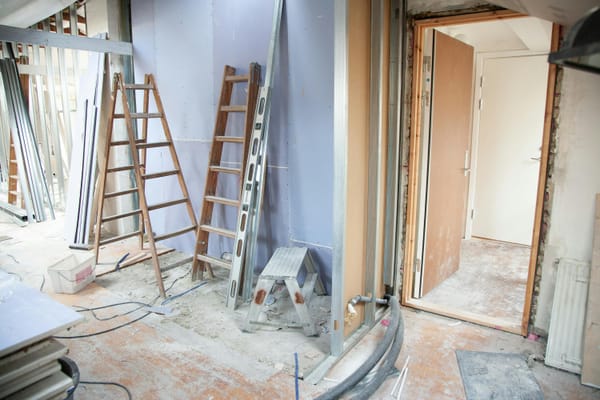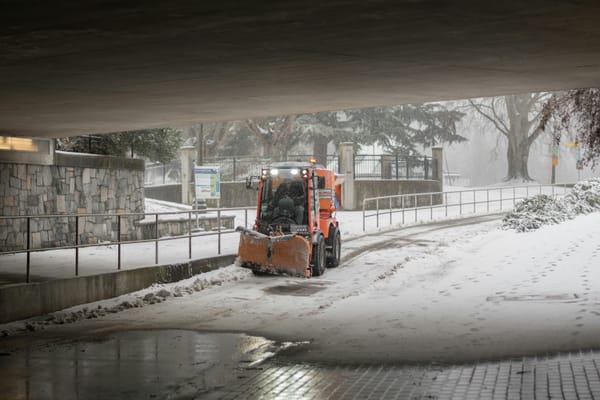The Importance of Roofing Warranties: Protecting Your Roof and Investment in Arapahoe County

When you install or replace a roof, one of the most important aspects to consider is the warranty. Roofing is a significant investment, and understanding the warranty associated with your new roof can provide you with peace of mind for years to come. Whether you're installing a new roof or repairing an existing one, a good warranty protects your investment by ensuring that both the materials and the installation are covered in case something goes wrong.
For homeowners and business owners in Arapahoe County, a reliable roofing warranty can save you from unexpected expenses, offer protection from manufacturing defects, and ensure that your roof continues to perform well. In this article, we’ll explore why roofing warranties are important and what you should look for when evaluating a warranty for your next roofing project.
What Is a Roofing Warranty?
A roofing warranty is a promise from the roofing manufacturer or contractor that they will repair or replace materials or workmanship if defects or issues arise within a specified period. A good roofing warranty gives homeowners and business owners confidence that if something goes wrong, they won’t be left to deal with the costs and headaches on their own.
There are generally two types of roofing warranties:
- Manufacturer’s Warranty: This covers defects in the materials used in your roofing system, such as shingles, tiles, or metal panels.
- Workmanship Warranty: This covers issues that arise due to installation mistakes, such as improperly placed flashing or unsealed joints that cause leaks.
Having both types of warranties can provide comprehensive protection for your roof and ensure long-term performance.
Types of Roofing Warranties
1. Manufacturer’s Warranty
The manufacturer’s warranty protects you against defects in the roofing materials themselves. This warranty ensures that if your roofing materials fail due to manufacturing defects or material flaws, the manufacturer will replace the faulty materials at no cost to you. Manufacturer warranties typically last between 20 years and a lifetime, depending on the material used.
What’s covered:
- Material defects that affect the roof’s integrity.
- Premature deterioration of the materials due to manufacturing flaws.
What’s not covered:
- Installation errors, which are typically covered by a workmanship warranty.
- Damage caused by environmental factors like storms or falling debris.
- Routine wear and tear from age.
2. Workmanship Warranty
Workmanship warranties are issued by the roofing contractor who performs the installation. These warranties cover issues arising from poor installation, such as improper flashing or mistakes that lead to leaks or damage. Workmanship warranties generally last between 1–10 years, but some contractors may offer longer coverage depending on the complexity of the project.
What’s covered:
- Faulty installation that leads to roof leaks or other issues.
- Problems arising from improper installation methods, such as missing fasteners or improper ventilation.
What’s not covered:
- Damage from extreme weather (e.g., hail, windstorms) or physical impact (e.g., falling tree branches).
- Issues due to lack of maintenance or general wear and tear over time.
To ensure you’re fully protected, it’s best to look for both a manufacturer’s warranty and a workmanship warranty. A reputable arapahoe roofing company can help explain the different options and ensure that you have full coverage for your new roof.
Why Roofing Warranties Are Crucial
1. Financial Protection
Roof repairs can be costly, especially if they are unexpected. A strong warranty protects you from unexpected expenses by covering the cost of repairs or replacements due to defective materials or poor installation. Without a warranty, you could be left with significant out-of-pocket costs if your roof develops issues early on.
2. Peace of Mind
A roofing warranty offers peace of mind by assuring you that, if something goes wrong, you have the support of the manufacturer or contractor to correct the problem. This is especially valuable for homeowners and business owners who want to avoid the stress of dealing with roofing issues shortly after installation.
3. Increase Property Value
Having a roofing warranty in place can make your home or business more attractive to potential buyers. When a new roof is under warranty, it signals that the roof is still in its prime and has long-term protection, which can add value to the property and make it easier to sell in the future.
4. Professional Installation and Quality Materials
Roofing contractors who offer comprehensive workmanship warranties are often highly invested in ensuring that the job is done correctly. Contractors with strong reputations and warranties are more likely to use high-quality materials and follow best practices during installation, knowing they are responsible for any issues that arise within the warranty period.
What to Look for in a Roofing Warranty
Not all roofing warranties are the same. To ensure that you are adequately protected, it’s important to understand the details of the warranty you’re considering. Here are some key things to look for:
- Length of Coverage: The length of the warranty will vary depending on the materials and contractor. While some warranties last 10 years, others last a lifetime. Be sure the coverage matches your expectations for how long you plan to live in your home or own your business.
- Transferability: If you plan on selling your home or business, a transferable warranty can increase the resale value. Look for a warranty that can be transferred to the new owner, which can make your property more attractive to potential buyers.
- What’s Covered and Excluded: Be sure to read the fine print. Some warranties exclude certain types of damage, like hail or impact damage, while others may require regular inspections or maintenance to stay valid.
- Labor Costs: Some warranties only cover the materials, leaving you to pay for the labor to repair or replace the faulty materials. Ask about whether the contractor offers a separate workmanship warranty to cover labor costs as well.
- Exclusions and Requirements: Ensure you understand any exclusions or conditions that might void the warranty, such as improper maintenance, unlicensed repairs, or lack of periodic inspections.
How to Keep Your Roof’s Warranty Valid
To make sure your roofing warranty remains valid, it’s important to follow the maintenance guidelines set by the manufacturer or contractor. Here are some tips:
- Schedule regular inspections: Many warranties require professional inspections. Have your roof inspected at least once a year to catch any potential issues early.
- Perform routine maintenance: Regularly clear debris from your roof, clean gutters, and address minor repairs before they turn into bigger issues.
- Use certified contractors for repairs: Only hire contractors who are certified by the manufacturer to perform repairs, as DIY repairs or unlicensed contractors can void the warranty.
Final Thoughts: Secure Long-Term Protection for Your Roof
Roofing warranties provide invaluable protection for homeowners and business owners in Arapahoe County. A good warranty ensures that if something goes wrong with your roof—whether due to faulty materials or improper installation—you won’t be left with unexpected expenses. By choosing a reliable contractor and understanding the details of both manufacturer and workmanship warranties, you can rest assured that your roof is protected for years to come.
If you’re ready to install or replace your roof, be sure to choose a trusted provider of residential roofing services that offers comprehensive warranties. For reliable contractors in Arapahoe County, consider checking out the Diamond Certified Roofing Directory.



